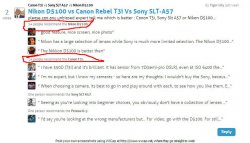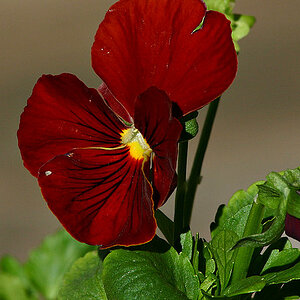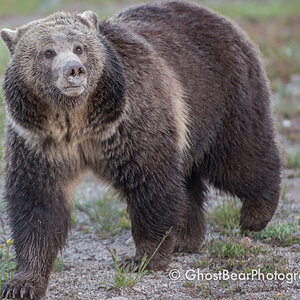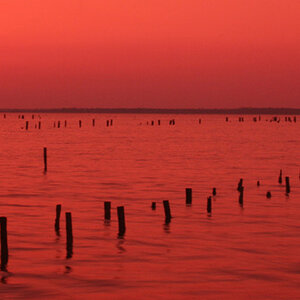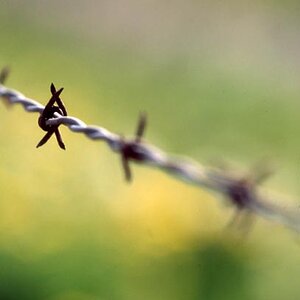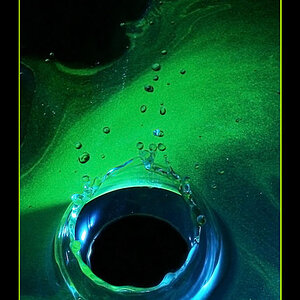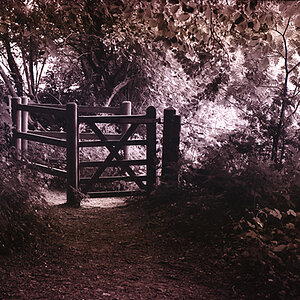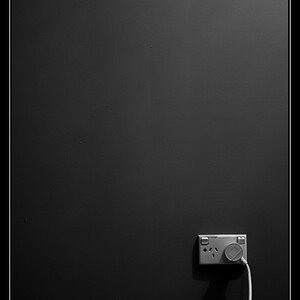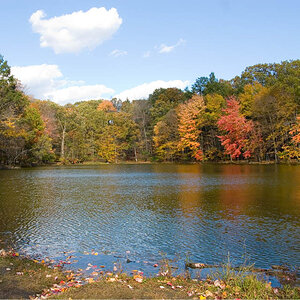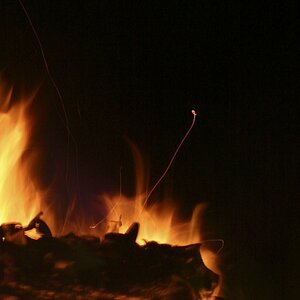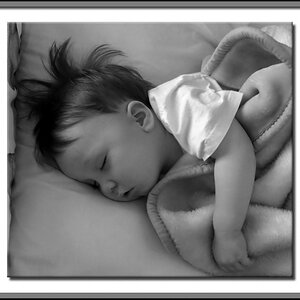AaronLLockhart
TPF Noob!
- Joined
- Jun 17, 2012
- Messages
- 889
- Reaction score
- 177
- Can others edit my Photos
- Photos NOT OK to edit
Hehe, If I didn't seek help from here, I would have definitely bought Nikon D3200 or Nikon D5100, but now I think, I made a better decision.
This is exactly what I'm talking about. Because if you're comparing the cameras feature to feature, you made the bad decision:
Canon T3i vs Nikon D5100 - Our Analysis
In fact, even the D5000 (my camera, and one model generation older than the D5100 and T3i) has a 10% better image quality, 1 f-stop more dynamic range, more color depth, and higher ISO performance than the Canon Rebel T3i. So, if you ask me, the T3i is a TERRIBLE choice, as the D5100 is a much better camera than mine.
You will find that, in almost all of Canon's entry level line up, that Nikon's comparable model reigns over their camera solution as far as feature set and specifications are concerned.
Last edited:


